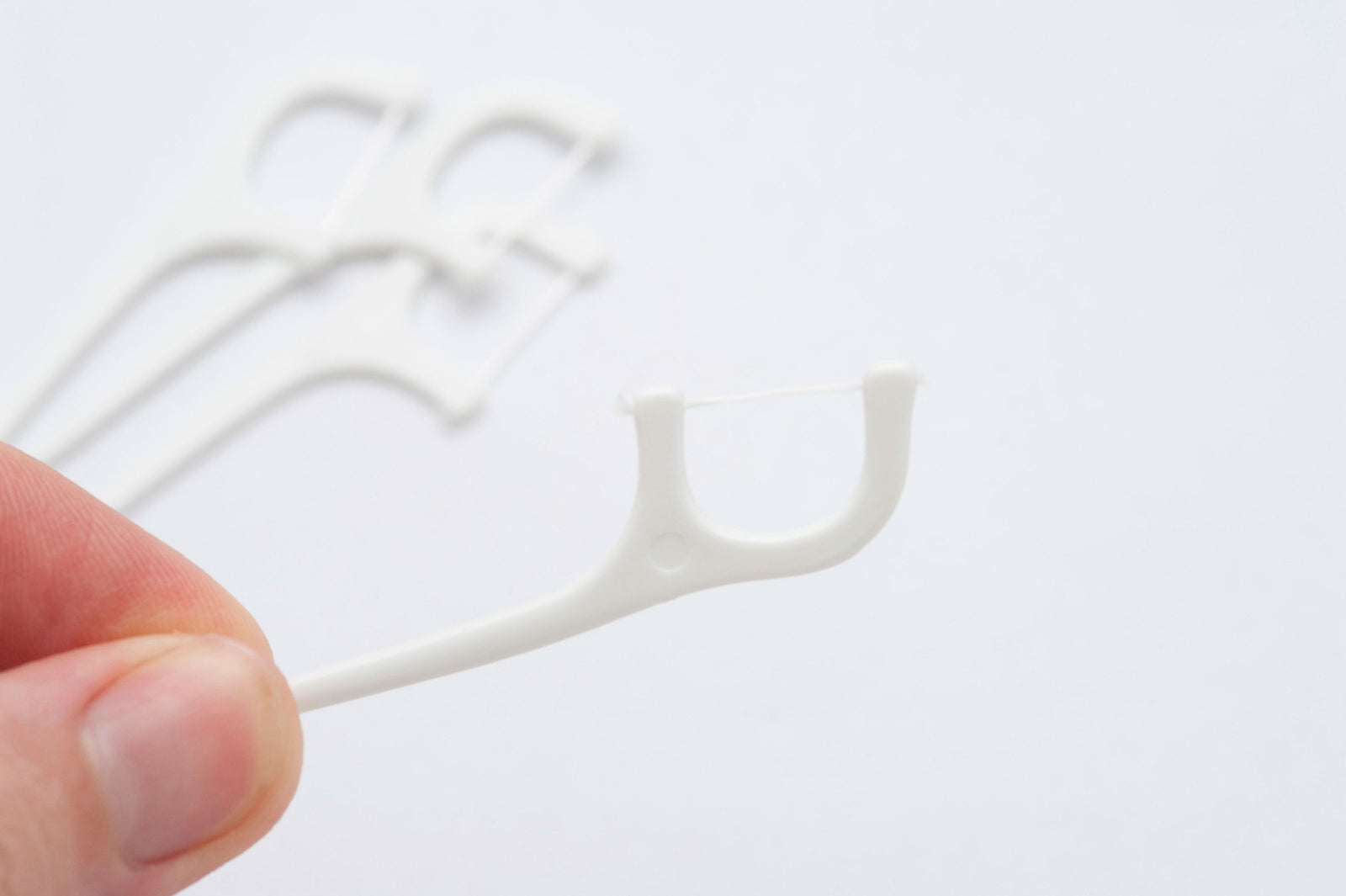
You might be pretty good about brushing your teeth in the morning and before you go to bed. Maybe you’ve even invested in a high-end electric toothbrush — a show of commitment to your oral hygiene. But there’s a little-known secret about oral health that may come as a surprise, and without it, you’re still leaving yourself vulnerable to destructive microbes. Well…maybe not so much of a “surprise.” It’s the same thing your dentist mentions every time you visit: Flossing is an essential part of any oral hygiene regimen. And they aren’t just saying it to make small talk with you, either. Whether you floss with a water flosser, dental pick, or regular ol’ floss string, proper flossing makes a world of a difference for your dental hygiene.
The Trouble with Brushing
In fact, many dental professionals say that flossing daily is more important than brushing. While brushing will remove plaque build-up and bacteria from the exteriors of your teeth (and keep bad breath under control — you’re welcome, cubicle mate), like most things in life, the real culprits lie beneath surfaces and around dark corners. In fact, some of the most destructive microbes for your overall oral health thrive and proliferate between teeth and under gums. Now, there are advantages and disadvantages to flossing, but there are only disadvantages if you aren’t doing it properly. Here are some of the advantages:
Reduces Gum Irritation, Recession, and Disease
Those pesky little microbes, hiding in creases and folds, are up to no good. They irritate gums, causing them to bleed and become inflamed. When the gums have had enough of the microbes’ antagonism, they recede. That, in turn, sets off a chain of events that starts to get ugly.
When the gums recede, more of the tooth and root are exposed. The thing is, they were never meant to be. No, this part was meant to be tucked away in a warm gumline, far from all those trouble makin’ microbes. As a result, this portion of the tooth (often its root), is particularly vulnerable to infection and decay because it is not protected with a thick coat of protective enamel like the crown part of the tooth is.
Curtails Escalation of Even More Serious Dental and Health Issues
Those microbes — like a group of rebellious, destructive teenagers — take gum recession as a queue to take things further. The gaps between teeth get bigger as gums get lower, opening up more cover for them to expand into and multiply abundantly. When this happens, the gums often also become less tightly wrapped around the tooth, allowing microbes to get under the gumline. At that point, you’ll need a professional intervention — and possibly even an antibiotic regimen to boot. Yikes.
But wait, folks, it gets worse. If you leave that unchecked and those microbes fester (because after all, how often are you checking in on your gum line placement?), you can develop diseases like gingivitis and other periodontal diseases. There are even studies that suggest there are correlations between gum disease and serious health conditions like heart disease, stroke, and diabetes.
Backing out of that worst-case-scenario rabbit hole, you could have other — let’s call them ‘highly undesirable’ — side effects, like premature tooth loss. And we hate to break it to you, but you only get two sets of teeth in a lifetime, and the tooth fairy already paid you out for the first set. Considering the price of dentures, she really made out like a bandit on those. We should have charged her more than $1 a rock, but we commend her cut-throat entrepreneurship.
How Flossing Helps?
Luckily, there’s a better way to maintain good oral hygiene and prevent things like gum disease. You can prevent that succession of unfortunate events by — you guessed it — flossing! You’re probably tired of being told to floss every time you’re in the dentist’s chair. To be honest, most dental professionals are probably tired of telling you (and every other patient they have) to do it and/or hearing patients say they do it when their bleeding gum lines say otherwise. However, after looking at a million mouths, I think it’s safe to say that they’ve seen how ugly it can get. Perhaps rather than telling us, they could play a slideshow of some of the stuff they’ve seen on TV that’s mounted on the ceiling. Let the pictures do the talking.
Flossing is Preventative
Bet that waxy string doesn’t sound so bad now, does it? As with most things in life, there’s a right way and a wrong way to do it. The wrong way: The way most people do it. The right way on how to floss: Wrap the floss around the tooth so that the string is actually in two crevices at once, one on each side of the tooth. Then work the string like a cartoon character works a towel when they are drying off after a shower. This will dislodge any food debris that may have become settled in there, eager to start a microbe family. And if the waxy string isn’t something you want to incorporate into your dental hygiene regimen, there are other alternatives to flossing that might fit better!
Many dental professionals recommend flossing first, then brushing. That way, whatever plaque or particles get dislodged will be washed away in the brushing process. This oral hygiene routine is your best bet in combating decay and supporting strong teeth, healthy gums, and maintaining a smile worth flashing for years to come. Whether you choose to start water flossing or include regular ol’ dental floss in your regimen, you are sure to keep your dental health in check.
Sources:
https://askthedentist.com/how-to-floss/
https://www.colgateprofessional.com/education/patient-education/topics/plaque-and-gingivitis/what-is-periodontal-disease
The post Why is Flossing Important? appeared first on ToothShower.



Leave a comment (all fields required)